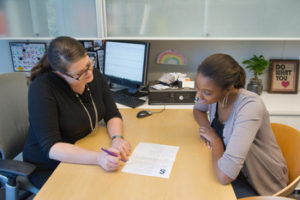I’m back! After a brief winter-break hiatus, I’m back to impart some Maxwell knowledge. This month’s topic? Internships!
Most people go to graduate school for two reasons: (1) to feed their hunger for knowledge, and (2) to improve job/salary prospects. With this post, I hope to show you the real advantages of being part of the “Maxwell Mafia” in finding work opportunities.
As a Public Diplomacy (PD) student, I am “strongly encouraged” to intern abroad during the summer between the two years of my program. So while I’m not on the job-hunt yet, I am on the internship-hunt!
From Maxwell, there are two ways to intern abroad. You can either participate in one of the many Global Program options provided by SU, or you can do it on your own.
The way I understand it, the “global program option” through the school is helpful because it means Syracuse already has connections in your country of choice, and faculty/staff help you to find and secure your internship. Initially, I was looking at the Global Programs in Brussels and Geneva. The process is like this: you apply to the Global Program of your choice (standard essay questions, resume, etc.), you interview with the program directors in both locations, and successful applicants are admitted. From there, you have conversations with the in-country Syracuse faculty member so he/she gets a better idea of your interest and what kind of internship would be a good fit for you. While he/she looks around to help find available internship opportunities in your field of interest, Syracuse faculty stateside help you refine and perfect your application materials—resumes, cover letters, interview techniques, and more.

Ultimately, though, I chose not to apply to the Syracuse Global Programs simply because I am more comfortable picking the exact internship I want rather than involving third parties. The downside, obviously, is I don’t get the same in-country assistance that a Global Program would provide me. HOWEVER, Maxwell is still helping me every step of the way in my quest to find the right position for me. I’ve been meeting with my new best friend Laura (really, I love her) at the Maxwell Career Development Center (called CDC around Maxwell) weekly to work on cover letters and resumes. What’s more, she’s been extremely helpful about putting me in touch with Maxwell alums abroad that work in my area of interest.
Being a PD student, I have the added benefit of also having access to the Newhouse School’s career center. Media internships in general require totally different (more artistic) kinds of application material, so they’ve been a great help, too.
Bottom line is that being here gives me direct access to resources and contacts that I would not have had otherwise. Us Maxwell students are beyond lucky, because we all have a small army of people here to help make sure we end up in our perfect positions after graduation. Plus every time I have a mini “crisis” about my future, they are nice enough to listen…and then help coach me after I finally stop ranting. 🙂
As always, feel free to reach out any time with questions! Until next month.



